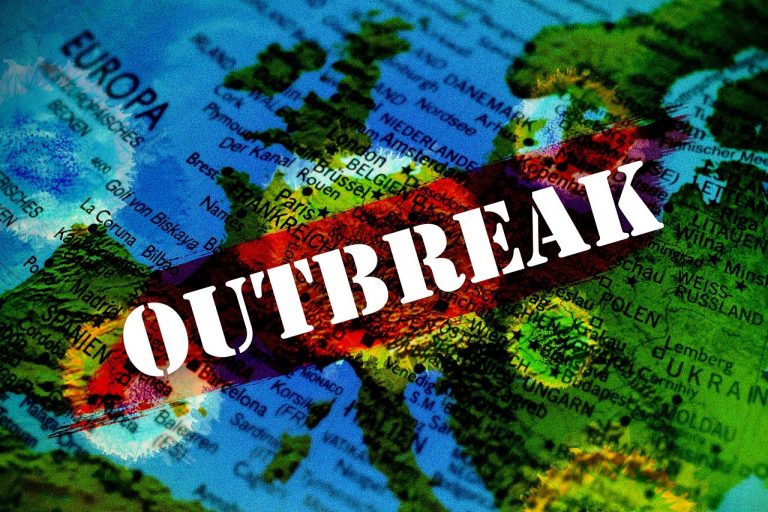Multiple European nations have once again entered the lockdown phase as a new wave of coronavirus infections threatens to deepen the pandemic crisis.
The lockdowns come as the region faces severe challenges in vaccinating citizens against COVID-19, trailing behind other nations like the UK that have sped along with its vaccination campaign.
Italy imposed new coronavirus restrictions on March 15 to slow down the expansion of the third wave of infections. The country’s seven-day average of new cases stands at 22,000. Tens of millions of people are classified as living in the most dangerous ‘red zones.’
In these regions, strict travel bans have been enforced. If any person wishes to leave their homes, they must apply to the government. Almost all businesses, except those deemed essential, have been shut down.
In France, lockdowns have been imposed in 16 regions, including Paris. Residents will have to provide attestation forms if they wish to travel 10 kilometers away from their homes. They will also need to carry proof of address with them at all times. A curfew will be in effect between 7 PM and 6 AM. Inter-regional travel is prohibited except for serious reasons. Those who do not follow these mandates will be fined €135 (approx. $161).
Success
You are now signed up for our newsletter
Success
Check your email to complete sign up
Poland has announced the closure of non-essential shops, cultural facilities, sporting centers, and hotels for three weeks after infection rates surged by over 40 percent from last week’s numbers. Polish Health Minister Adam Niedzielski stated that the sudden spike in COVID-19 patients is due to the spread of the virus’s UK variant. Groceries and medical shops are exempt from the closure mandate. All in-person classes are to be canceled during the lockdown.
Germany is also debating a potential lockdown in the face of a third infection wave. Health Minister Jens Spahn said that the rising number of infections means that the country cannot take steps to open up in the coming weeks. At a news conference, he pointed out that the third wave cannot be stopped by using vaccines alone.

“There are not yet enough vaccine doses in Europe to stop the third wave by vaccination alone… Even if the deliveries from EU orders come reliably, it will still take a few weeks until the risk groups are fully vaccinated,” Spahn said at a news conference.
Meanwhile, many European nations have resumed using AstraZeneca vaccines following concerns that it causes blood clots. European Medicines Agency (EMA) has dismissed such concerns, with its investigation concluding that the vaccine is “safe and effective.” The EMA’s report was welcomed by health experts who believed that blocking the vaccine would only worsen the pandemic situation in Europe.
Pandemic surges and vaccinations in the UK
The UK is more advanced than Europe at vaccinating its citizens. The region has vaccinated over 27 million people. In comparison, Europe’s leading nation in this regard, Germany, has only vaccinated less than 13 million citizens. The UK had approved its first vaccine three weeks ahead of the EU, gaining a significant advantage.
However, Britain’s vaccination campaign, including securing supplies and distributing the vaccines, has also been far better planned than the EU, contributing to its success. But despite these measures, England’s Chief Medical Officer, Professor Chris Whitty, warns that the third wave of infections in autumn is inevitable.
“As things are opening up, what all the modeling suggests is that at some point we will get a surge in virus… Whether that happens, we hope it doesn’t happen soon, but it might for example happen later in the summer if we open up gradually, or if there’s a seasonal effect it might happen over the next autumn or winter… Some of them will end up in hospital and sadly some of them will go on to die. That’s just the reality of where we are,” Whitty said in a statement.
Follow us on Twitter or subscribe to our email list














